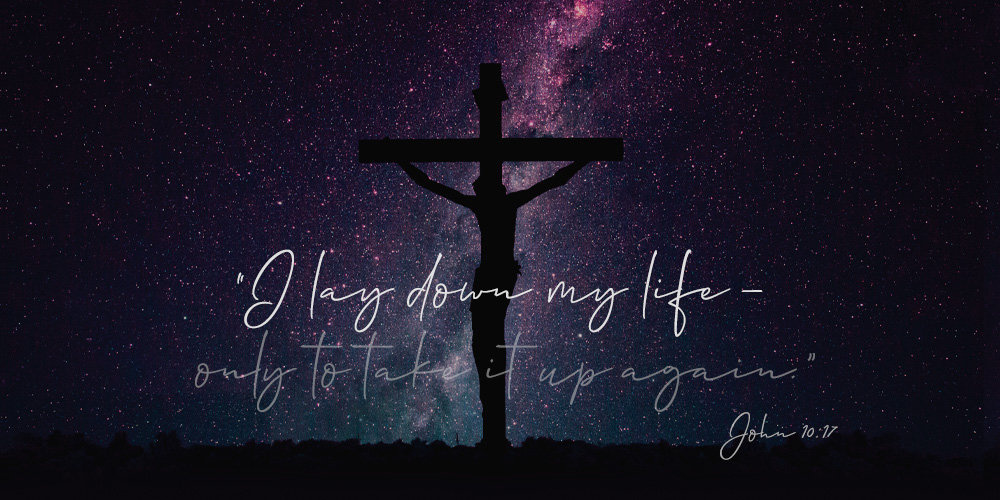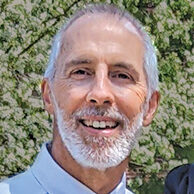 |
Jesus laid down his life so that life comes to us.
“Mine!” cries the two-year-old to his one-year-old sister who has unknowingly laid hands on a favorite toy. “It’s my body,” says the female activist who insists she has the right to do what she wants with the life that is in her womb.
“Stay out of my room,” says the teenager to her pesky little brother when she wants some alone time. “You’re sitting in my seat,” says the regular churchgoer to the bewildered guest who had no idea the church pews had names on them.
Human beings of all ages have a tendency to hold tightly to possessions, ideologies, customs, and other things in their daily lives. It is part of our navel-gazing nature to be possessive about our things, our time, our bodies, and just about anything else we view as belonging to us. That possessiveness also shows itself when it comes to our relationship with God. It’s my life, and no one’s going to tell me how to live my life. It’s my life, and I’ll keep it no matter what the cost. No one’s going to take my life from me.
His life to give
But there is a way to talk about our life that is not being possessive, a way in which we are simply acknowledging that we have been given a life to live. This was certainly true of our Savior. The life that he was given became his possession in a very special event called the incarnation. Jesus had human life the moment the Son of God took into himself our human nature and was conceived by the Holy Spirit in Mary’s womb. It is this life that Jesus is talking about when he says he has authority from his Father to lay down his life: “No one takes [my life] from me, but I lay it down of my own accord. I have authority to lay it down and authority to take it up again. This command I received from my Father” (John 10:18). “His life” is the fact that Jesus now had a human body and soul. Unless this was true, he could not have laid down his life.
But there is more to the fact that he laid down his life than just that his soul and body separated in what we call death. For unlike the human race that shares flesh and blood with him, Jesus did not cling to his life as we do.
Clinging to life isn’t just about staying alive; it is about pursuing the things that this life has to offer. This is what the human race does. It runs after the things of this world. It pursues pleasure and possessions. It lives for luxury and license. It seeks sensuousness and security. It is not willing to yield to others, to take less so others can have more, to say no to desires that would harm self or others.
But Jesus does not share these human characteristics. He shares flesh and blood but not the need or desire to have what this life offers. For this life offers only temporary things. This life offers limited joy.
A willing sacrifice
Unfettered by the need for this world and its vain glory, Jesus is willing to lay down his life. That means more than just death. It means he denies himself. He is willing to sacrifice everything for a more lofty goal: to do his Father’s will. His Father has given him the authority to lay down his life. This authority is embedded in the unity between the Father and the Son, which makes their wills one. So Jesus is willing to lay down his life—thinking nothing of his own needs—and focus only on the human race that is in need of being redeemed.
The redemption price is his life. Nothing less. When he laid down his life, Jesus was willing to consider his life of less value than all the people in the world. But, indeed, the life he laid down was greater than the lives we try to keep. His life was the life of the Son of God. His life had immeasurably more value than the lives he was placing before his. His was a perfect life. His life was flesh and blood in perfect standing with God. His life was without a curse of its own. Yet he laid it down. He accepted for himself the curse of the worthless lives of the world. He took for himself the sinful, imperfect standing of the human race before God.
He did this willingly. He did not cry out “Mine” and pull back his life for his own enjoyment. He did not demand that his life was his to do with as he wanted. He did not resist and revolt against those who unknowingly served to fulfill God’s plan. He laid down his life. It was his to give, and so he gave it, knowing full well what it meant for him. His Father desired it. His love for his Father and for those his Father loved led him to go where his soul had sorrowed to go—to the point of death. He was doing more than laying down his life. He was taking up hell. He was paying the world’s wages for sin. There was no holding back. There was no selfish statement “But it’s my life.” He laid it down. And because of this the Father loved him. “The reason my Father loves me is that I lay down my life” (John 10:17).
A loving sacrifice
Jesus had to lay it down. No one could make him do this. No earthly power could take the life of the Godman. He himself is Life. Eternal God. The beginning and the end. He could walk on water. He could raise the dead. The weather obeyed him. Herod couldn’t touch him. Roman soldiers toppled at his word. But a power like none other overpowered him and compelled him to lay down his life: love. Love for the world. Love for you. Love for me.
He laid down his life so that life comes to us. His life pleased the Father. More than that, his life appeased the Father. Through the laying down of his life and the taking up of our hell, Jesus reconciled us to the Father. This is life. Jesus restored to us the relationship that was lost in the Garden of Eden. The Father loves the Son, and so he loves us. That is my life. My life already goes beyond the grave because of Jesus.
So we can lay down our life too. We can lay down the need to hold tightly to our possessions when we see someone in need. We can lay down the need to be first and instead think of the needs of others before our own. We can lay down the need to receive approval from others and be willing to suffer disgrace and insult for the sake of Jesus. We can lay down our goals and take up his goals for our life. And we can finally lie down and rest in peace because he laid down his life for us.
“My life,” Jesus said. But never “mine.” Rather, “my life” for your life.
This is the first article in a two-part series on John 10:17,18. Read the second article.
Author: Joel V. Petermann
Volume 110, Number 03
Issue: March 2023







